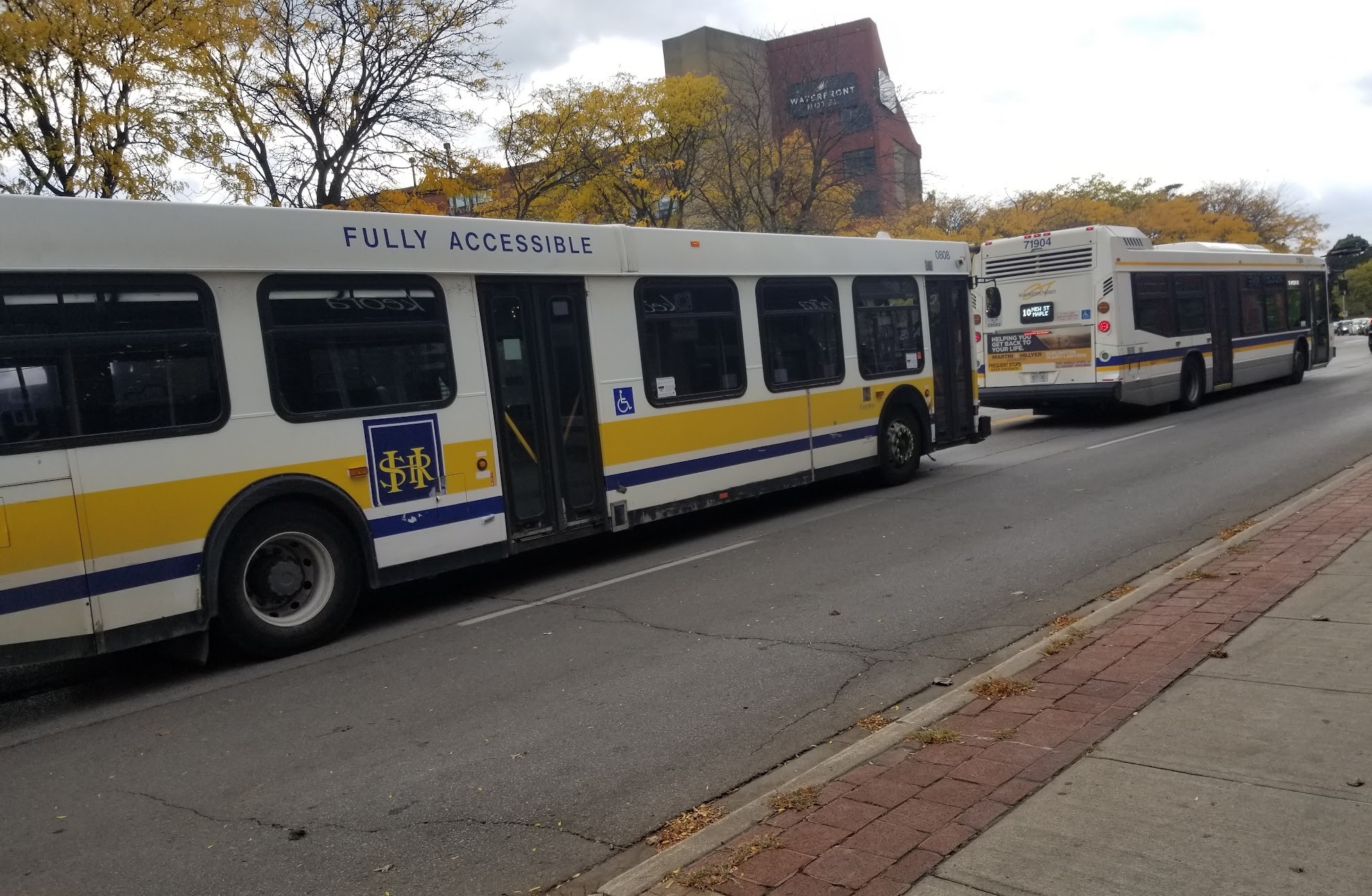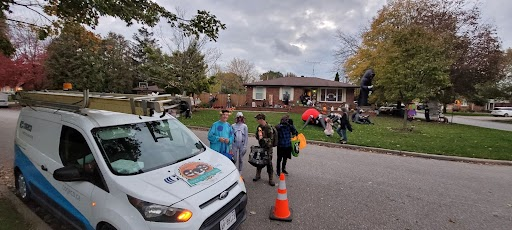Media Release — From Stop Sprawl Halton (Email to Halton Regional Council)
February 4, 2022
RE: Stop Sprawl Halton input to Halton Workshop on the Growth Plan, February 9th 2022
Dear Regional Chair Gary Carr, and Councillors
Stop Sprawl Halton is an ad hoc group of Halton concerned citizens augmenting the voices of residents who have been raising the issues of climate change and protection of farmland for years. Those voices are evident when polls are conducted to determine what the top-of-mind issues are in Ontario and Canada. These concerns were reflected in Halton’s public engagement sessions held in 2021, where addressing climate change and protecting farmland were the top priorities for residents. In fact, Concept 3B was the overwhelming choice by attendees.
Unfortunately, much time has been wasted by all levels of government that failed to use all the tools available to address these critical concerns, which need immediate attention. We expect that our local municipal government will use this opportunity to use your powers to address these issues.
Stop Sprawl Halton attracted citizens from across Halton Region who view this Official Plan Review as a crucial time to avoid the mistakes of the past, and take a firm stance against the continuous sprawling growth of our municipalities. We ask, if not now, then when will this stop? Without a firm stance now by our municipal leaders, it is hard not to conclude there will be no end.
The provincial government has chosen to extend the planning horizon to the middle of the century. We know that if we don’t change the way we live and work now, by 2051 terrible climactic events will be common: critical food sources will be disrupted by floods, droughts, or wildfires; the cost of insurance will have skyrocketed, as is already happening for municipalities; the health of all living plants and animals will be stressed, often to the point of extinction.
These are extreme problems that are clearly on the horizon. That is why when planning the shape of our future communities, we expect our leaders to make climate change and farmland preservation their top priorities.
Halton Rural Agricultural Strategy
It is disturbing that the planners thus far have not placed a higher emphasis on these issues. For example, the recommendations from the Halton Agricultural Advisory Committee are buried in the attachments of the November 17th council workshop, with the little or no regard paid to them. There is no reference whatsoever to the Halton Rural Agricultural Strategy that Regional Council adopted in 2016.
The Rural Agricultural Strategy’s fundamental principles included adopting ‘systems-based planning to sustain the rural and agricultural communities including permanent protection of contiguous prime agricultural areas.’ It has been 5 years since this strategy was endorsed by Halton Council and yet it appears as though there has been no discussion about what land should be protected and what land is not suitable based on its agricultural value.
Farmers, through HAAC, the Halton Federation of Agriculture, the Ontario Federation of Agriculture and the Ontario Farmland Trust are raising red flags about the rapid loss of farmland across Ontario. Halton’s proposed contribution of 5000 acres is significant on its own, but if every region across the GGH converts similar amounts of farmland to urban uses, it could total upwards of 50,000 acres of prime agricultural land lost forever. This is certainly significant. In our opinion, it is essential that an assessment of the impact to the agricultural system be evaluated, and further, that this be done before a decision be made that most certainly will impact the agricultural system. We expect these shortcomings to be discussed as part of the workshop on February 9th.
We also believe that more needs to be done, to not only preserve the land, but to also actually implement the many suggestions the farmers have made to the planners, to help them be successful as farmers. This is what the Halton Rural Agricultural Strategy calls for and it is what Regional Council has endorsed. But where is the implementation? It should be a given that if we preserve farmland that we also invest in farming, even if it is only through changes in process, restrictions and fees. There should be language in the Official plan that addresses these issues.
Employment Land
Stop Sprawl Halton is very concerned about the conversion of prime agricultural land for what appears to be a declining number of jobs per square foot. Automation is continuously eliminating jobs, and of course these businesses do their best to keep that trend going. An unintended consequence of targeting warehousing businesses is, that you need more and more land because it yields fewer and fewer jobs. We question if this is the best use of valuable land.
There is currently enough approved employment land to last to 2041. However, we are aware that multi-storey warehouses are being introduced into the Canadian market and exist in Europe. If secondary plans required more intense use of the land, this land could potentially last to 2051. Why not take the time to re-examine secondary plans with the goal of yielding more jobs and higher assessment per hectare?
Commercial Development
We believe it is time to reconsider our commercial areas. It is clear that historic commercial areas like downtown Oakville, or Georgetown, act as a community hub; a pedestrian friendly area with residential above the stores and some higher density nearby to provide plenty of customers for the shops and restaurants and cafes. These areas come alive during patio season and provide venues for cultural events. However, the newer commercial areas continue to be built with none of these attributes. If we are truly trying to build complete walkable neighbourhoods, we would be designing our new commercial areas to have these qualities as well. When we fail to build people-centred commercial areas, the result is a geography of nowhere, dominated by national retailers that rob new residents of a sense of place and a sense of community. It is time to revisit secondary plans that fail to deliver people-centric commercial areas and take the opportunity to add to the quality of life our residents want and deserve. By taking this approach, we believe that more density can be added to existing greenfield areas that have not yet been developed.
Residential Growth
Regarding climate change, there is ample evidence that compact urban centres produce less greenhouse gases per person than sprawling suburban towns and cities. The goal must be to intensify first and spread out as a last resort. The Places to Grow Act in fact demands that we do so. The Oakville Planning Report regarding the Region’s Integrated Growth Management Strategy dated January 17th 2022, also indicated that more could and should be done to accommodate growth before recommending opening the boundaries. Stop Sprawl Halton expects that Council will take this to heart and will ensure that every avenue has been leveraged to the greatest extent possible.
There has been much rhetoric about hundreds of tall towers, and it is our belief that this is neither appropriate nor necessary. We suggest that councillors and planners look to other cities (Melbourne, Portland, Oregon) that have embraced gentle density, inclusionary zoning, and the missing middle to spread the additional density more evenly across the municipality. Furthermore, simply planning to accommodate population in tall towers will not meet the housing mix required in the Growth Plan. We believe that more can be done, and should be done, before endorsing a preferred growth scenario.
Creating the conditions that will allow gentle density to be introduced into existing neighbourhoods will make those neighbourhoods more livable, will supply more affordable homes, and will provide the choice in housing inside the existing urban boundary, instead of exporting it to outlying areas. Please re-evaluate exclusionary zoning with the goal of allowing gentle density within R1 zones.
A good article on the merits of gentle density can be found here: http://www.njtod.org/gentle-density/.
The approved, but undeveloped, greenfield lands offer another opportunity to provide more ground-related housing. It is our understanding that secondary plans can be revisited if approved more than 2 years ago. Council should direct the planners to go back to the drawing board and redesign these areas to provide more townhouses, semis and smaller single lots. This is the moment when Halton can design new neighbourhoods that are the gold standard in urban planning, while at the same time, planning for more ground related housing that will satisfy the requirement to address the market for single family dwellings.
Economics of Suburban Sprawl
The City of Ottawa released a study in 2021, showing that low density, suburban development cost the city $465/person/year versus saving $606/person/year. It makes sense that it costs more for the municipality to maintain more kilometres of infrastructure. Transit in particular is costly when not supported by density. Purely from a financial point of view, it makes financial sense to plan for denser neighbourhoods, especially when those neighbourhoods are still in the planning stage.
Conclusion
We hope that councillors will agree with our position that not enough has been done to accommodate growth within the current urban boundaries, and will direct staff to go back to look for ways to achieve a zero boundary expansion growth scenario. We believe that doing so will make our communities more inclusive, will address the issue of affordable housing, will help us meet our greenhouse gas reduction goals, and will ensure we are consistent with the Growth Plan by employing every avenue to accommodate growth without opening our boundaries. Halton has the opportunity of a lifetime to address formidable challenges with a plan that will be a model we can be proud of, and that others will strive to copy.
We look forward to listening to your discussions at your workshop on February 9th, on what is arguably the most consequential decision of this term of office. We wish you wisdom and vision as you consider the future shape of Halton.
Respectfully submitted by Stop Sprawl Halton
StopSprawlHalton.org
stopsprawlhalton@gmail.com
cc, Regional Clerk, Halton Hills, Milton, Oakville, Burlington local councillors





